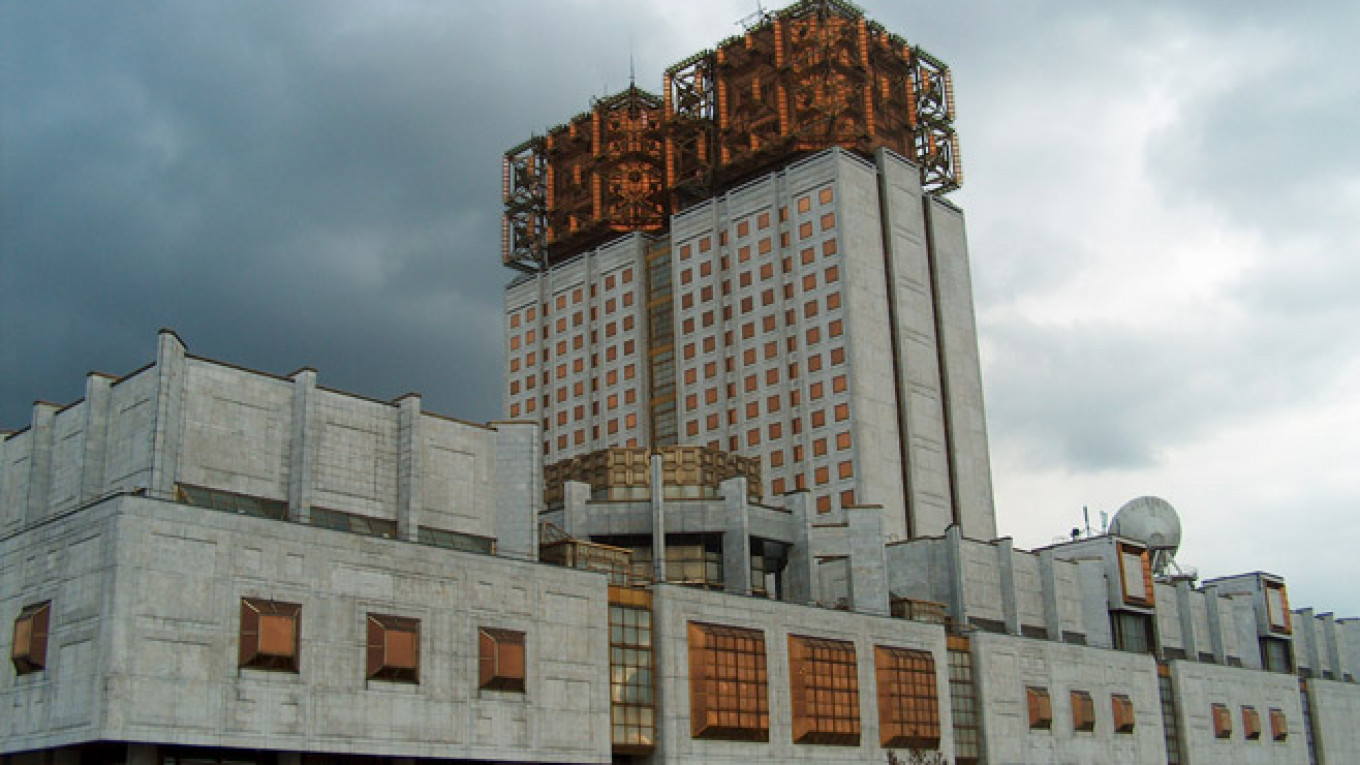A widespread embrace of Soviet values and the domination of state employment place members of Russia's middle class in stark contrast with those of the West, a new study published by the Russian Academy of Sciences shows.
The exact parameters of Russia's middle class have remained a matter of debate. Among other things, substantial income differences have long distinguished members of Russia's middle class from their Western counterparts.
Now, however, the Academy of Sciences has pinpointed another peculiarity of Russia's middle class: most people who comprise it are on the state's payroll.
That may explain another trend uncovered by the academy's research: the predominance of loyalty to the government, with 79 percent of the middle class saying the state deserves support despite its many flaws. Seventy-eight percent said stability was more important than change, and 49 percent said Russia needed a "firm hand" to keep order in the country.
Vladimir Petukhov, manager of the center for social research at the academy's Sociology Institute, described the middle class as entirely content with the status quo.
"Most members of the middle class today are loyal [to the state] and are really fond of order and stability, and moving society forward is the last thing on their minds," Petukhov said in comments carried by Ogonyok.
By the beginning of 2014, Russia's middle class made up 42 percent of the population — marking significant growth from earlier years. This growth suggests that Russia is catching up with its Western counterparts, the middle classes of which generally makes up between 50 and 60 percent of the population.
One figure revealed through the study that some may find alarming is that of the decline of entrepreneurs among Russia's middle class. In 2013 alone, the number of individual entrepreneurs fell by 13 percent, leaving the estimated number of those engaged in entrepreneurial work at a mere 3.5 million people.
Vladimir Gimpelson, director of research at the National Research University of the Higher School of Economics, told Ogonyok that many sectors of the economy were simply being swallowed up by the civil sector.
"The civil sector we have is simply huge … and somehow or another, it is predominant in many social spheres: it has drowned the middle class. …" Gimpelson told Ogonyok.
The study, published by the academy's Sociology Institute, is entitled "The Middle Class in Contemporary Russia: 10 Years on."
See also:
A Message from The Moscow Times:
Dear readers,
We are facing unprecedented challenges. Russia's Prosecutor General's Office has designated The Moscow Times as an "undesirable" organization, criminalizing our work and putting our staff at risk of prosecution. This follows our earlier unjust labeling as a "foreign agent."
These actions are direct attempts to silence independent journalism in Russia. The authorities claim our work "discredits the decisions of the Russian leadership." We see things differently: we strive to provide accurate, unbiased reporting on Russia.
We, the journalists of The Moscow Times, refuse to be silenced. But to continue our work, we need your help.
Your support, no matter how small, makes a world of difference. If you can, please support us monthly starting from just $2. It's quick to set up, and every contribution makes a significant impact.
By supporting The Moscow Times, you're defending open, independent journalism in the face of repression. Thank you for standing with us.
Remind me later.


